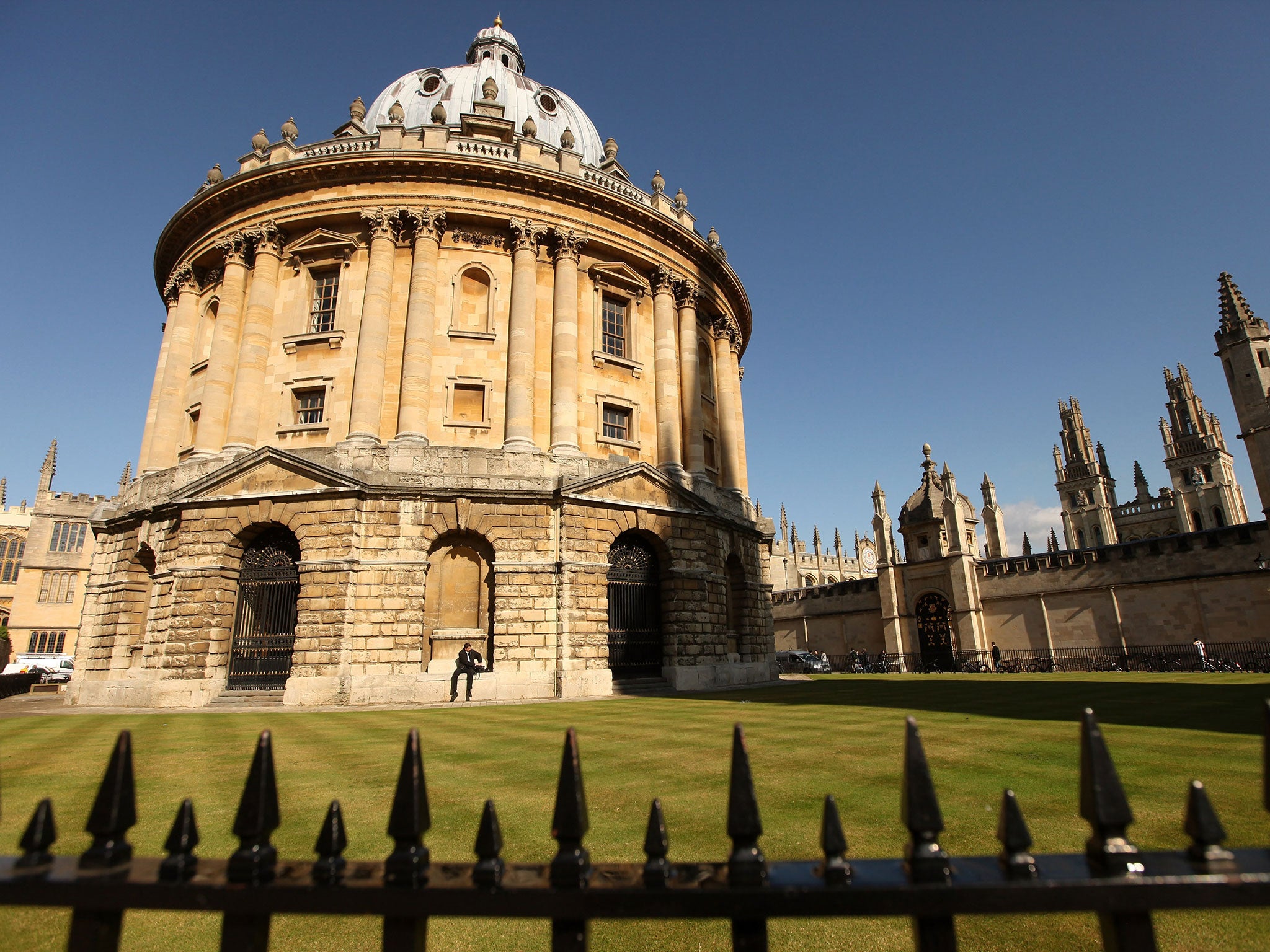EU referendum: Leaders of 100 top UK universities warn of Brexit risk to global standing
Exclusive: In an open letter to The Independent, vice chancellors from almost every major higher education institution in Britain say they are 'gravely concerned' about a vote to leave

Your support helps us to tell the story
From reproductive rights to climate change to Big Tech, The Independent is on the ground when the story is developing. Whether it's investigating the financials of Elon Musk's pro-Trump PAC or producing our latest documentary, 'The A Word', which shines a light on the American women fighting for reproductive rights, we know how important it is to parse out the facts from the messaging.
At such a critical moment in US history, we need reporters on the ground. Your donation allows us to keep sending journalists to speak to both sides of the story.
The Independent is trusted by Americans across the entire political spectrum. And unlike many other quality news outlets, we choose not to lock Americans out of our reporting and analysis with paywalls. We believe quality journalism should be available to everyone, paid for by those who can afford it.
Your support makes all the difference.Britain will lose its place as a “global leader in science and innovation” if voters turn their back on the European Union in this week’s referendum, around 100 universities warn today.
In a letter to The Independent the vice chancellors of almost every major higher education institution in the country say they are “gravely concerned” about the impact of Brexit.
The signatories include the heads of Oxford, Cambridge and Durham and Bristol and all of the UK universities in top 50 world rankings. The letter shows the depths of concern among academics about the risks of pulling out of the EU.
They point out that every year, universities generate over £73 billion for the UK economy – £3.7bn of which is generated by students from EU countries alone.
“EU membership supports British universities to attract the brightest and best minds from across Europe, enhancing university research and teaching and contributing to economic growth,” they write.
“Voluntarily cutting ourselves out of the world’s largest economic bloc would undermine our position as a global leader in science and innovation, impoverish our campuses and limit opportunities for British people.”
The Vice Chancellors go on to warn that leaving Europe would “create a difficult environment for the long-term investment in higher education and research” that is necessary for the UK to maintain its position as a skilled and a globally competitive knowledge economy.
“For us it is crystal clear that our outstanding universities – and our students – are stronger in Europe.”
In other developments:
- The head of the Premier League came out in favour of Britain remaining in the EU and said he had the backing of the all the teams in the league. However a few later contradicted him and said they were remaining neutral.
- Leading figures in the car industry including BMW, Jaguar Land Rover, Toyota and Vauxhall also threw their support behind remain. Nissan meanwhile said it was going to take legal proceedings against Vote Leave for a leaflet suggesting that it was in favour of Brexit.
- Sterling rose against the dollar in one of its strongest rallies in a decade after polls showed support for remain increasing.
The letter comes as a new poll, using methodology developed after the 2015 general election, shows that the result of the referendum is within the margin of error.
The survey, conducted by the research centre NatCen, shows support for remaining in the EU at 53 per cent while 47 per cent back leaving.
The survey was conducted as an experimental test of a new approach to polling that was recommended by the Inquiry into the performance of the opinion polls in last year’s general election.
While conducted primarily over the internet, respondents were selected for interview at random rather than from amongst people who had volunteered to participate.
Those who initially failed to respond were followed up by phone, while interviewing was conducted over an extended four week period, with multiple attempts made to make contact with hard to reach respondents.
The survey estimate takes into account likely differences between voters in their willingness to vote in the Referendum. These differences are estimated on the basis of the level of participation in the 2015 election reported by respondents when they took part in the 2015 British Social Attitudes survey, NatCen’s annual high-quality survey which came close to replicating the result of the 2015 general election.
Read the full text of the letter and a list of signatories here.

The EU referendum debate has so far been characterised by bias, distortion and exaggeration. So until 23 June we we’re running a series of question and answer features that explain the most important issues in a detailed, dispassionate way to help inform your decision.
What is Brexit and why are we having an EU referendum?
Does the UK need to take more control of its sovereignty?
Could the UK media swing the EU referendum one way or another?
Will the UK benefit from being released from EU laws?
Will we gain or lose rights by leaving the European Union?
Will Brexit mean that Europeans have to leave the UK?
Will leaving the EU lead to the break-up of the UK?
What will happen to immigration if there's Brexit?
Will Brexit make the UK more or less safe?
Will the UK benefit from being released from EU laws?
Will leaving the EU save taxpayers money and mean more money for the NHS?
What will Brexit mean for British tourists booking holidays in the EU?
Will Brexit help or damage the environment?
Join our commenting forum
Join thought-provoking conversations, follow other Independent readers and see their replies
Comments